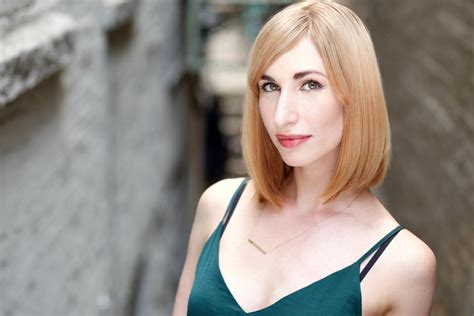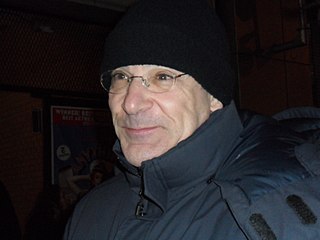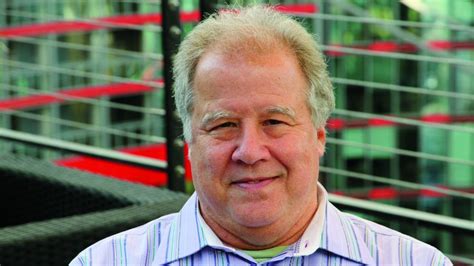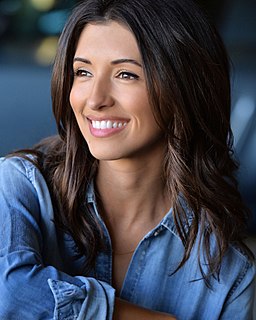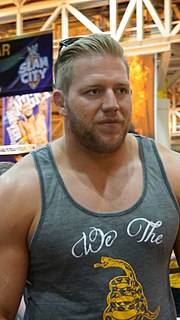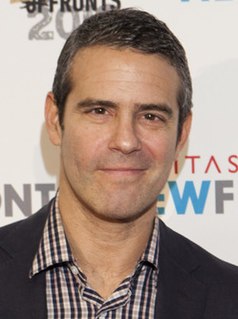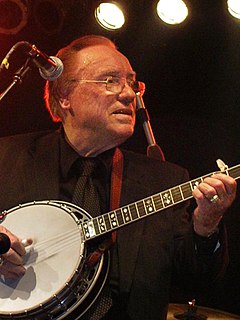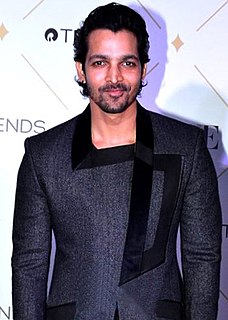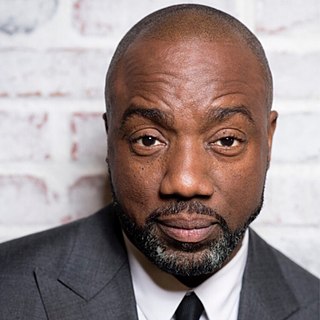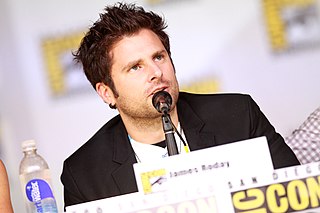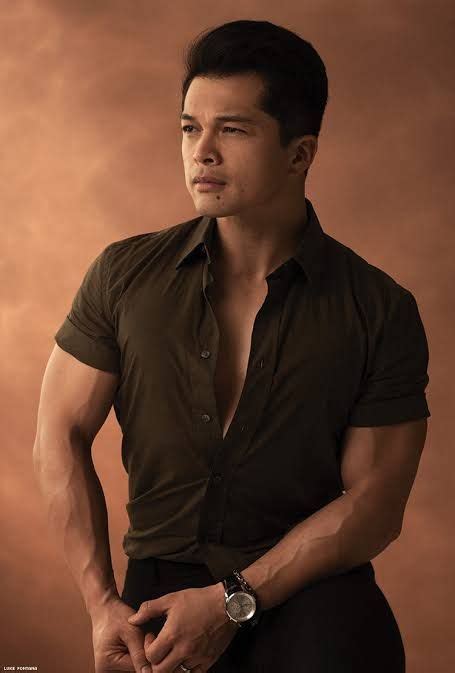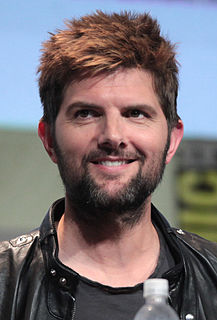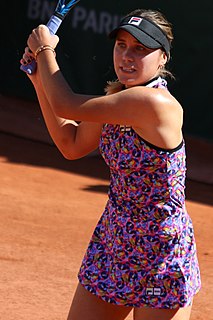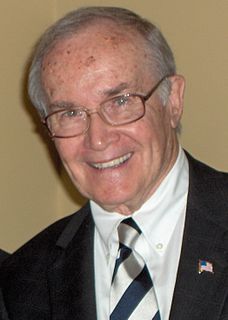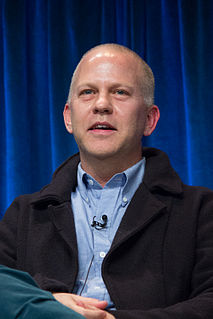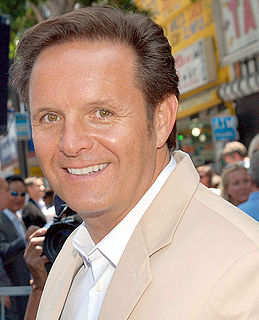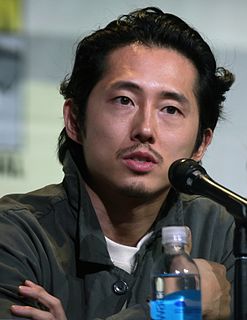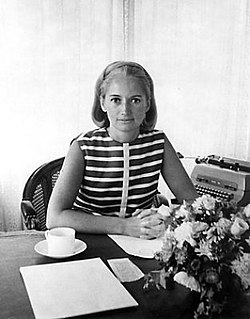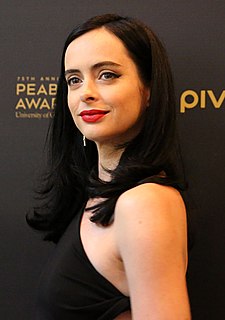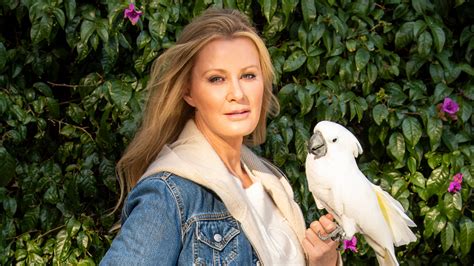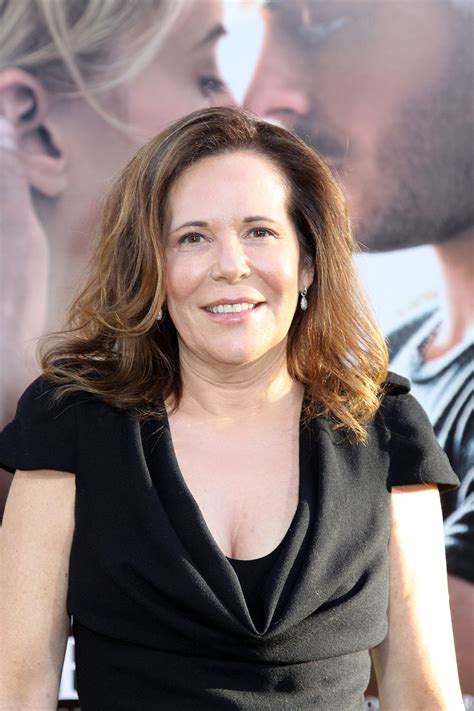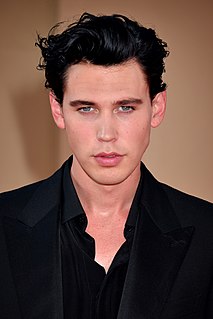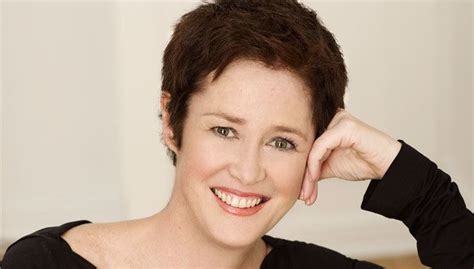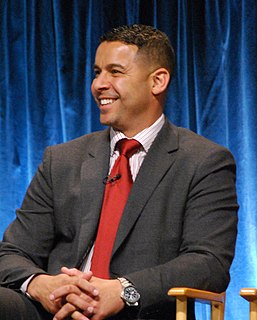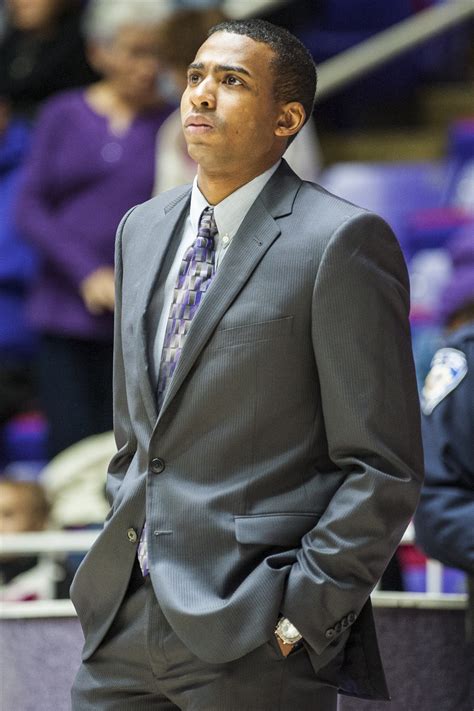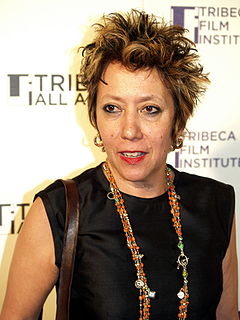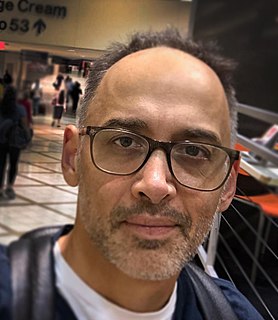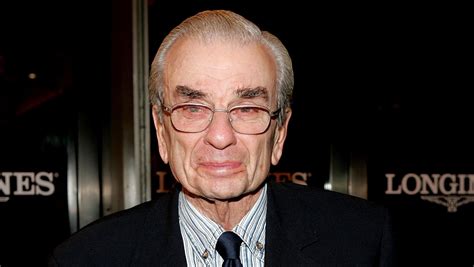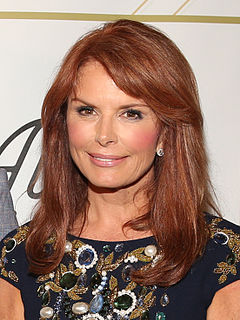Top 1200 Television Show Quotes & Sayings - Page 20
Explore popular Television Show quotes.
Last updated on September 19, 2024.
It [The Esemblist] is also about the generation of audience members that are watching shows and listening to us at the same time; hopefully, in time, when they listen to our show and then go see a show, they'll realize even more what it takes to make a show, and they'll know even more about everybody on stage, rather than just people above the title of the show.
I had no interest in being an actress what so ever, and when I was about 14 or 15, I was signed to a company in England. They owned a children's TV show which they put me in as a singer, and I was on the show for three years, and I left the show when I was 18 and started looking for a record contract.
I love a smart, well-written show, and '30 Rock,' well, you can't get any better than that. Tina Fey poos funny. There's nothing that she does that isn't funny. That show is an example of how brilliant she is. It's so smart. They've done some brilliant commentary about the 'Housewives' with 'Queen of Jordan,' their show-within-the-show.
At the age of 16, I ran from my house, did odd jobs till l landed work on television and then in film industry. My first job was at an STD booth in Delhi. Then I came to Mumbai, where I distributed DVDs, and that is when I got my first TV show offer, 'Left Right Left.' I have never planned things in my career.
When he came to television, there was no way I wasn't going to watch. Of course, he delivered everything that you would expect David Lynch to deliver, and more, and he was doing it in primetime network television. Even as a 14-year old, I wanted someone in the room with me that I could look over and say, 'Can you believe we're watching this?'
More and more, you're seeing television shows that are better than 99% of the movies out there. I mean, you watch something like the last couple of seasons of 'The Sopranos,' which is some of the most sophisticated writing I've ever seen filmed and some of the best filmmaking I've ever seen - and it's a TV show.
I was a crazy Pee-wee Herman fan when I was in my early teens. Before he had the kids' TV show, he had a nightclub show in L.A., and I had gotten a VHS copy of it. It was a kids' show, but onstage in a bar, so it's sort of poking fun at the kids' show. And I was obsessed with that, and then 'Pee-wee's Big Adventure.'
Television is such an evolving medium. When you're doing a TV show, it's not like you just shoot for six weeks and you're in an editing room with all of your footage. It's like a guitar or a car, you have to fine tune things. You stop doing what's not working, you work on what is working and you add things that do work.
My father did think I should get interested in television. But I had very little interest in television and it wasn't something I wanted to do. I really never thought about going to work on big feature films in Hollywood. But when we made The Householder, Columbia Pictures bought it. Who would have ever imagined?
When television is good, nothing - not the theater, not the magazines or newspapers - nothing is better. But when television is bad, nothing is worse. I invite each of you to sit down in front of your television set when your station goes on the air and stay there for a day without a book, without a magazine, without a newspaper, without a profit and loss sheet or a rating book to distract you. Keep your eyes glued to that set until the station signs off. I can assure you that what you will observe is a vast wasteland.
If you look at 'American Horror Story' or 'Crime Story,' these are visceral, action-packed, sometimes bloody episodes of television. They're not 'feminine.' They're not about sexy women sitting around looking beautiful, drinking lattes. These episodes are calling cards to show companies like Marvel, 'Look, women can do these kind of movies.'
You can say that all you want, but even in the little time that I've been in this industry, I've learned that it isn't exactly what you expect, so you've got to have a level head. I thought people would dig it. I thought people would enjoy it. It's AMC. I thought people would be fans. But, I did not think we would be the best new show on television.
The first time I watched television I felt exactly as if something important had taken an elevator ride up to my head and gotten off and turned on the light in my mind. I knew that I was going to do something in television. It was in my cards. I remember feeling the warm relief of knowing where my future was.
'Bonfire' was kicking around for a very long time. It was an idea I wanted to explore for a television show. Then I was given this weird gift of time when 'Jessica Jones' finished season one. I got really organized and just kind of banged it out, but it took a long time. It took two years to even have a first draft.
I think that, honestly, people's censorship issues are personal but I disagree with most of those personal choices that I see others make. You know, I watch television and there's a grotesque amount of violence on almost every show that you would watch that comes on past 8:00 pm. And I think my dirty brand of humor is far less destructive to a child's mentality.
There's even more blending of genres happening. They blend sci-fi with action, or family drama with a mystery show. People don't want to just do the same thing that everybody's done a thousand times before, and that's probably a big part of it. I think you're also seeing television and features speak to each other. You see it happen in movies, and it starts to get reflected on the small screen.
I felt pretty good growing up. I didnt feel a lot of prejudice or racism. But I do remember, if there was going to be a movie or a television show with Asian characters, I would go out of my way to avoid them, because they portrayed all Asians as either ridiculously good or ridiculously bad; you know, the whole Charlie Chan-Fu Manchu thing.
